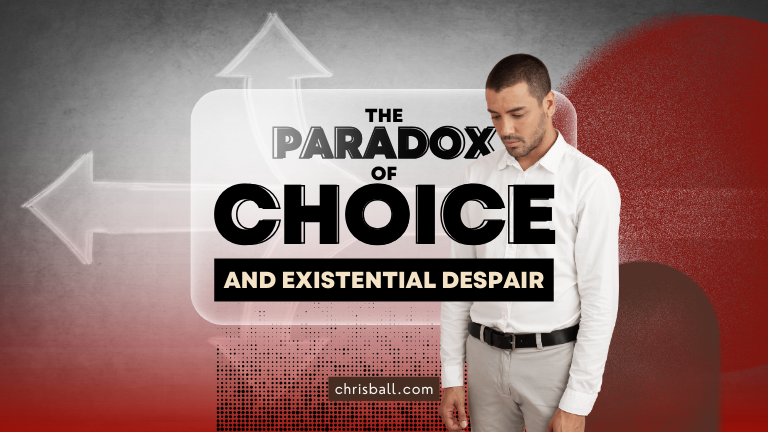In today’s world, the sheer abundance of choices available to us in every aspect of life, from the career paths we can take to the products we can buy, presents a unique paradox. While having options is theoretically liberating, it often leads to a sense of overwhelm and existential despair. This is a phenomenon that Søren Kierkegaard, the Danish philosopher and theologian considered the father of existentialism, foresaw over a century ago.
Kierkegaard posited that true despair arises not from a lack of choices but from an abundance of them, coupled with the heavy burden of freedom and the responsibility to choose. This despair stems from the existential challenge of defining ourselves in a world that offers endless possibilities. The more options we have, the more we fear making the wrong choice, leading to a paralysis of indecision or the dread of missing out on an unchosen path.
The paradox of choice in our modern era can be seen in simple daily decisions—what to watch on streaming services, which product to buy among hundreds of similar ones, or which of the countless career advice articles to follow. These seemingly trivial choices pile up, contributing to a low hum of anxiety and dissatisfaction. On a deeper level, the choices regarding our life’s direction, beliefs, and values bear the weight of existential significance, amplifying this sense of despair.
Kierkegaard offers a way out of this despair, not by reducing the number of choices but by imbuing our decisions with meaning. He suggests that despair can be overcome by confronting it, acknowledging the absurdity of existence, and then choosing to live authentically according to one’s own values and beliefs, rather than societal expectations or the fear of missing out.
To navigate the paradox of choice and find meaning in decision-making, we must first reflect on what truly matters to us. This involves a deep and honest examination of our desires, fears, and values. It’s about recognising that not every choice needs to be monumental and that there’s freedom in embracing our limitations.
Moreover, making a decision—any decision—and committing to it can be an act of defiance against the despair of indecision. It’s in the act of choosing that we assert our existence and carve out our unique path in the world. Each choice becomes a brushstroke in the masterpiece of our lives, meaningful not because it was the best possible decision among countless others, but because it was ours.
In today’s world, where the buffet of choices laid before us seems endless and often overwhelming, Kierkegaard’s insights are more relevant than ever. They remind us that the essence of living authentically is not in having all the options but in making meaningful choices that reflect our true selves. By confronting and embracing the paradox of choice, we can find a path to existential fulfilment and ward off the despair that threatens to consume us in our quest for meaning in an overly abundant world.
